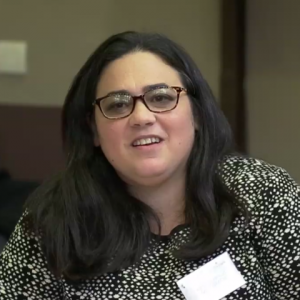Stories from the field
On our way towards re-glamorizing social accountability for service delivery (Part 6)
Our initial efforts to focus on practice as a way to address blind spots in research and evaluation have produced a good initial agenda, lots of questions to ponder with a wonderful, diverse group. What are the next steps for our emerging group?
Connect existing practice and practitioners: We are finding that there is lots of relevant practice already going on, so we need to pull that together and see what patterns/lessons emerge. We are also keen to identify insights that are relevant in related practices – from market systems to coproduction of service delivery to community led mobilization and global health – and befriend unusual suspects. As we navigate COVID19 response and recovery, we are re-learn that those blindspots we identified before the pandemic are more relevant than ever. It is imperative to overcome obstacles and start talking about what we do.
Open doors to make a big fuss about practitioners’ experiences and challenges: Dozens, perhaps hundreds, of civil society practitioners immediately relate to the theme of our effort. They face blockers to open up (ideas, interests, organizations, institutions). We are optimistic. We hope that in opening and legitimizing our collective call, they will no longer feel alone. We want to build confidence, visibility and strengthen solidarity among the group. We want our colleagues to find it easier to share their experiences in private and, ideally, in public. We are willing to find megaphones and try carving spaces in global conversations to empower their voices. For example, we recently spotlighted integrity icons and corona heroes as well as intersections between social accountability and the community-led development movement in GPSA Knowledge platform’s webinars. Those conversations explicitly aim to tackle blindspots colleagues care about and will continue over the next months in this platform.
We are also excited to share emerging research and evaluations that are “critical friends” to this cause. We started in some plenaries at the GPSA’s Partners Forum and some sessions convened by the Open Government Partnership, and the bet is beginning to pay off. Check out the conversation on open health for COVID19 response and recovery and this blog post.
Tom Aston has opened up a conversation revisiting his assumptions about the mechanisms of social accountability and, in so doing, invited other evaluators and researchers to be sharper regarding their own.
Invest time and resources in themes within the agenda that get traction: The agenda we propose here has many entry points. In the short term, we will prioritize themes that get traction organically as well as those for which that may be already resourced. We will take it from there. We invite you to do the same, in your own platforms.
What happens next is partly up to you: We have a growing list of people that are on this side of the argument, please reach out if you want to be part of the group. Please, let us know if this speaks to your operational realities and join us and help us surface other key components of the everyday politics of social accountability for service delivery!
Authors

Florencia Guerzovich
Independent consultant, Senior Advisor Monitoring, Evaluation, Research and Learning at the Global Partnership for Social Accountability, the World Bank
related content
Capitalizing on the ability of civil society organizations to collect information from users of public services about the state of public service delivery, and effectively channeling this information to decision-makers in government and parliament can contribute to evidence-based policymaking, and, ultimately, to improved public services.
